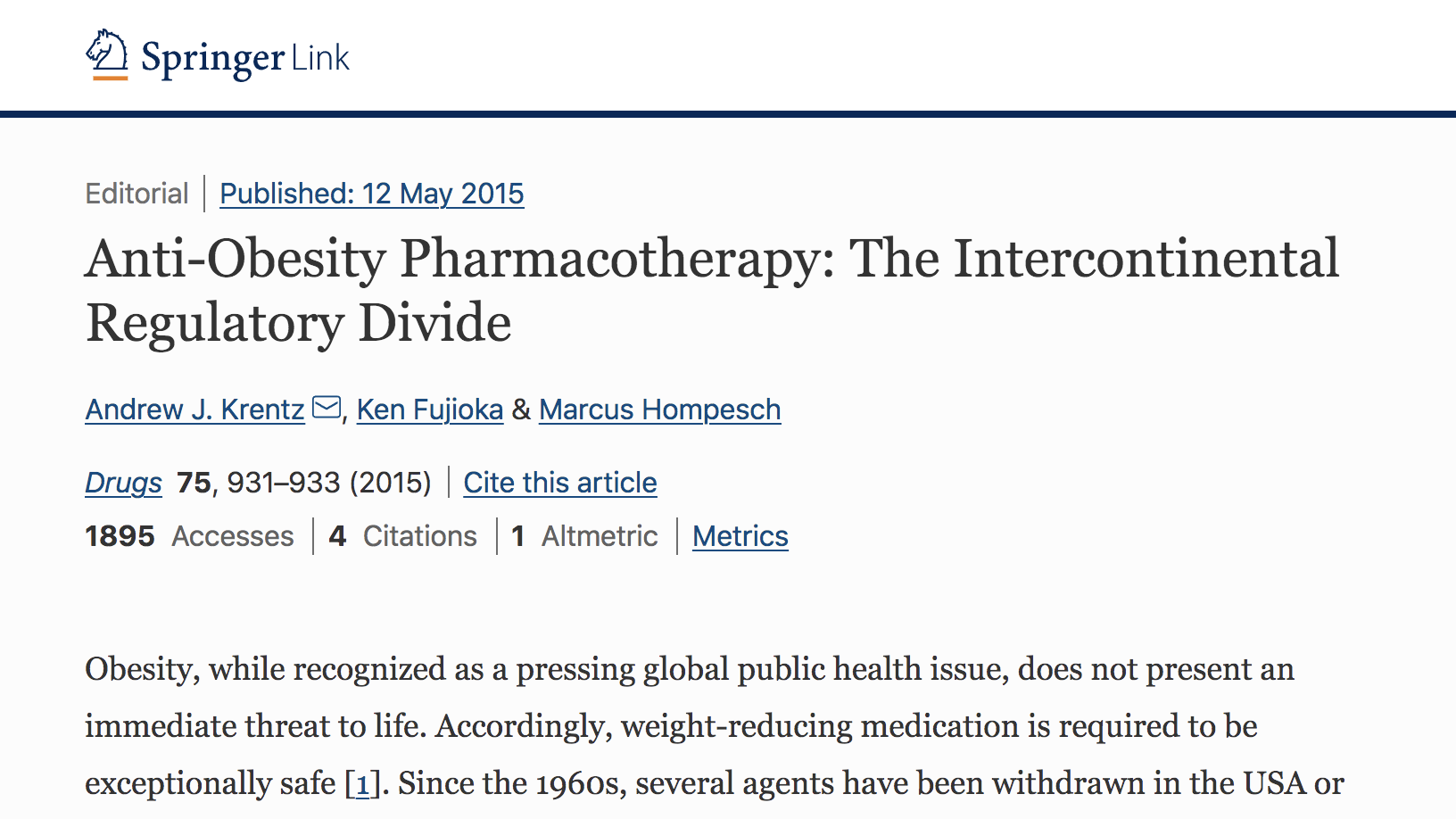About This Article
Obesity, while recognized as a pressing global public health issue, does not present an immediate threat to life. Accordingly, weight-reducing medication is required to be exceptionally safe. Since the 1960s, several agents have been withdrawn in the USA or Europe because of toxicity issues. Two events in particular helped change the regulatory and marketing landscape concerning the development, registration, and commercialization of weight-reducing drugs. The first was the suspension in 2008 by the European Medicines Agency (EMA) of marketing authorization for the cannabinoid receptor type 1 inverse agonist rimonabant following reports of psychiatric adverse events including suicidal ideation. The second was the demise of sibutramine, a serotonin–norepinephrine reuptake inhibitor, in 2010 in response to the results of a post-marketing safety trial that demonstrated an increased risk of non-fatal myocardial infarction and stroke in patients with pre-existing cardiovascular disease.



